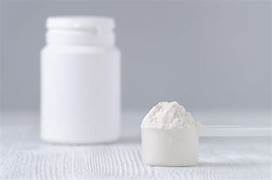Inulin Market In the realm of natural ingredients that contribute to better health and nutrition, inulin has risen to prominence as a versatile and functional dietary fiber. Derived from plants, inulin boasts an array of benefits that extend beyond its role in promoting digestive wellness. This blog delves into the captivating world of the inulin market, exploring its origins, health benefits, diverse applications, and its role in shaping the future of the food and beverage industry.
For More insights into the, Request a Sample of this Report:
The Nature of Inulin: From Roots to Riches
Inulin is a naturally occurring soluble fiber found in various plants, particularly roots and tubers. It’s a prebiotic, meaning it serves as a food source for beneficial gut bacteria. This unique characteristic sets the stage for a range of health benefits.
Health Benefits Beyond Digestion
Gut Health: Inulin acts as a prebiotic, nourishing the good bacteria in the gut. A healthy gut microbiome is associated with improved digestion, immune function, and even mental well-being.
Blood Sugar Regulation: Inulin’s slow digestion can help regulate blood sugar levels, making it valuable for individuals managing diabetes or looking to prevent spikes in blood sugar.
Weight Management: By promoting feelings of fullness and satiety, inulin can aid in weight management and portion control.
Bone Health: Some studies suggest that inulin may enhance calcium absorption, contributing to better bone health.
Diverse Applications in the Food Industry
Inulin’s functional and health-promoting properties have led to its integration into a wide range of food and beverage products:
Dairy Alternatives: Inulin is used in plant-based dairy alternatives to improve texture and mouthfeel, creating creamy and satisfying products.
Bakery and Snacks: Inulin enhances the nutritional profile of baked goods, providing fiber without compromising taste or texture. It can also serve as a fat replacer, contributing to healthier snack options.
Beverages: From smoothies to functional drinks, inulin can add fiber content without affecting flavor, making it an attractive ingredient for health-conscious consumers.
Functional Foods: Inulin is a key ingredient in many functional foods and supplements aimed at promoting gut health and overall well-being.
Market Trends and Growing Demand
The inulin market is experiencing substantial growth, driven by several factors:
Health-Conscious Consumers: Increasing awareness of the importance of gut health and overall wellness is driving the demand for products containing natural and functional ingredients like inulin.
Plant-Based and Clean Label Trends: As consumers seek out cleaner and more natural food options, inulin’s plant-based origin aligns well with these trends.
Sugar Reduction: Inulin’s sweet taste and ability to enhance flavor make it an attractive option for reducing added sugars in various products.
Sustainability and Future Prospects
With its plant-based source and eco-friendly production process, inulin aligns with the growing emphasis on sustainability and environmental responsibility. As consumers become more conscious of the environmental impact of their choices, inulin is poised to play a pivotal role in shaping the future of the food and beverage industry.
Conclusion
Inulin, the unassuming dietary fiber derived from plants, is a testament to the power of nature in promoting wellness and nourishing the body. Its role in supporting digestive health, managing blood sugar, and enhancing a wide range of food products showcases its versatility and potential. As the inulin market continues to expand and evolve, consumers can anticipate a wealth of innovative and health-conscious options that not only satisfy their taste buds but also contribute to a healthier and more sustainable lifestyle.
